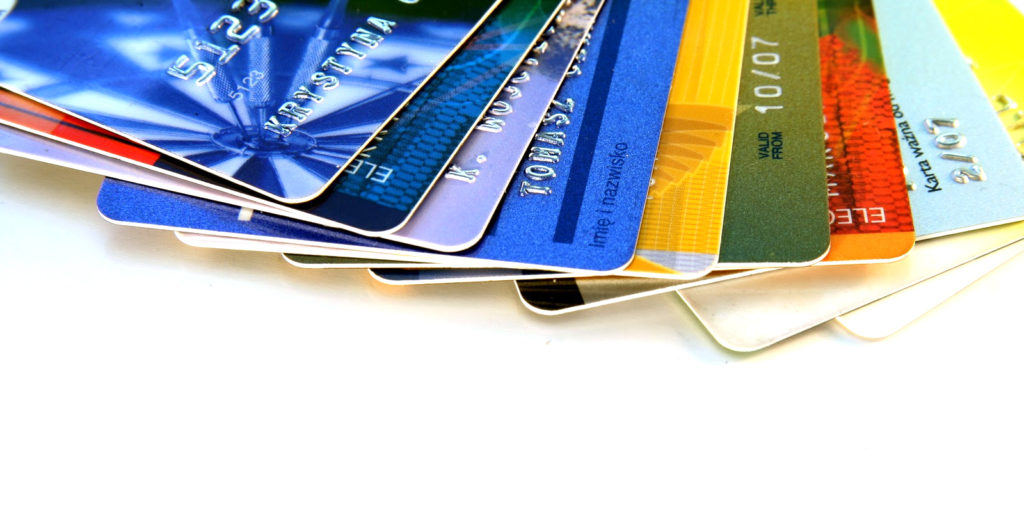I remember growing up afraid of credit cards because of all the bad things I heard about them. During my freshman year of college, I vowed to not be one of those people tricked into signing up for a credit card with a ridiculously high interest rate. I managed to get more than halfway through college before I realized the importance of having good credit and credit cards.
I came to this realization when I went to purchase a car and the salesman looked at me with pity after running my social security number for a credit check. “You need to establish recurring credit,” he said after letting me know that I’d have to pay a luxury-like car note for a Scion TC. I had no idea what recurring credit was. All I knew was that I paid my cell phone bill on time every month and thought that should count for something. The reality was it didn’t (Cell phone companies only report to credit bureaus once you’ve reached collections).
Years have gone by since that fateful day I realized I had no credit and I’ve worked hard to establish recurring credit and maintain an above average credit score.It took a while to get to this point and I thought it’d be a good idea to share some tips with others. Here are five tips that will surely help you boost your credit score:
Check your credit report and monitor it annually.
Your credit score may be impacted by a minor debt you have but aren’t aware of. The government offers free annual credit reports so be sure to request your copies to find out where you currently stand. These reports do not come with an actual score, but they’ll enable you to see what accounts are tied to your credit and see your account history. Credit Karma also allows you to monitor your credit. I’ve used it in the past and had no issues, however some complain about the credit offers on the site. It is a completely free way to monitor your credit as long as you don’t go overboard with the additional clicks and requests.
Dispute/settle any negative accounts on your credit report.
If there are any accounts in collections or ones that you have a past due balance on, it’s important to get them removed or settled. I know it sucks to pay that random $67 to a cell phone carrier when you know for certain that you paid your last bill in full. You have two choices: bite the bullet and pay it or dispute it to get it removed.
Get a credit card and use it regularly (but do not overuse it)
I can’t stress the importance of getting and using a credit card. This is the best way to accumulate recurring credit which can improve your credit score. I’d suggest buying only gas and/or groceries with your first credit card and paying off your balance in full each month. Also, never max out your credit cards because 30% of your credit score is based on how much of your available credit you’re using.
If your credit is bad (or you have none at all), you may not qualify for a traditional credit card. In this case your best option is to apply for a secured credit card. Essentially this means you can pay a bank or credit union a cash deposit and that becomes the credit line for your account. For example, if you deposit $300 in the account, you can charge up to $300. As far as I know, you will be able to get this deposit back if you make a year’s worth of on-time payments. This is an excellent way to begin building credit history.
Do not constantly sign up for additional credit offers..
Getting things now and paying for them later may be exciting to some, but it’s best to avoid getting multiple credit cards. Making several credit or loan applications within a short period of time will cause your credit score to drop because of the hits it creates. Be cautious about signing up at random stores to get that 20% on one occasion because all it takes is one time for you to forget you charged something to your (insert store name here)’s card for you to pay back that money you saved the first time and then some in late fees and interest charges…
Pay your bills on time
I know that sometimes life gets crazy and money is not always in abundance so you may get behind on a bill or two. Be sure to set up payment arrangements with companies if you’re having money trouble and set reminders in your phone to help you avoid missing payments. Paying your bills late will usually only impact your credit score when you’re 30 days late or more, however you want to pay credit card balances off as soon as possible to avoid interest charges. Paying on time can also help you avoid late fees and be the reason you feel super confident about how financially responsible you are.
These are five simple tips that certainly have helped me over the years and I hope they do the same for you. Are there any other suggestions you have to help improve credit scores? If so, please feel free to share below in the comments section!

